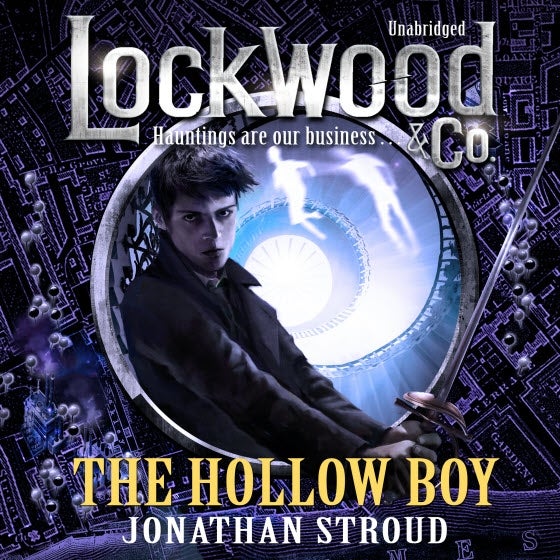The Hollow Boy, by Jonathan Stroud - book review: Who you gonna call?
Corgi - £7.99

Your support helps us to tell the story
From reproductive rights to climate change to Big Tech, The Independent is on the ground when the story is developing. Whether it's investigating the financials of Elon Musk's pro-Trump PAC or producing our latest documentary, 'The A Word', which shines a light on the American women fighting for reproductive rights, we know how important it is to parse out the facts from the messaging.
At such a critical moment in US history, we need reporters on the ground. Your donation allows us to keep sending journalists to speak to both sides of the story.
The Independent is trusted by Americans across the entire political spectrum. And unlike many other quality news outlets, we choose not to lock Americans out of our reporting and analysis with paywalls. We believe quality journalism should be available to everyone, paid for by those who can afford it.
Your support makes all the difference.Ghosts in fiction tend to make their presence most felt by the brevity of their appearances. Not so in this novel, where there is hardly standing room for the multitude of Lurkers, Glimmers, Spectres, Wraiths, and other assorted spirits haunting a London not quite as we know it but still with recognisable streets and squares. Since touching a ghost means instant death for anyone, who will then go on to change sides and join ranks with all the other unquiet phantoms, there is a pressing need for psychical investigative services able to neutralise this threat. The smallest and shabbiest of these, already met in two previous novels, is Lockwood & Co. Young but gifted Lucy Carlisle, one of the three in the company, is the story’s narrator.
What follows is an account of the firm’s toughest assignments, where standard weapons of salt, iron chains, magnesium flares, and rapiers barely prove enough to counter the dangers present in houses occupied by dubious elderly couples straight out of a Charles Addams cartoon. Lucy also becomes furiously jealous of glamorous new arrival Holly, who takes over some of her duties and also the prized attentions of Anthony Lockwood, the firm’s dashing but enigmatic leader. This proves additionally dangerous when a poltergeist is re-energised after picking up on Lucy’s permanent state of envious rage, egged on by unhelpful comments from the talking skull trapped in a ghost jar carried around in her rucksack. Sardonic, hyper-critical and untrustworthy, this character is a delight.
This author has been writing for more than 20 years without ever quite becoming the household name he deserves to be. Witty and inventive, he always provides plenty of excitement without ever losing the essential good humour found in his works. Writing horror stories which somehow avoid coming over as genuinely horrific is a rare gift, and Stroud is a worthy successor to those authors of adventure stories in the past who also set out to entertain without unnecessarily upsetting more sensitive readers. His ghosts lack any detailed psychological hinterland from their past lives; they are primarily there to frighten before being destroyed. Rhetoric is absent in favour of Lucy’s often self-deprecating account of herself and her friends, unheroic in what they say and do until coming to a climax when they all excel. Younger readers may well have a fight on their hands with older members of the household for first go at a novel that is such a continual pleasure to read.
Join our commenting forum
Join thought-provoking conversations, follow other Independent readers and see their replies
Comments